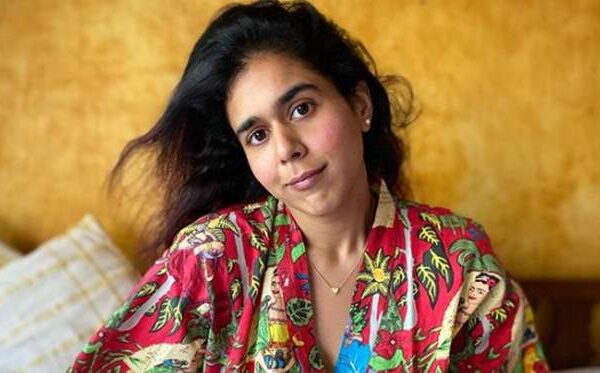“Happy marriages begin when we marry the ones we love and they blossom when we love the ones we marry”
Tom Mullen
MARITAL RAPE IN INDIA
During the 1980s, a handful of state judges opined in dicta what must be uncontrovertible to the feminist community, as well as to most progressive legal advocates and academics: the so-called marital rape exemption, whether statutory or common law in origin, constitutes a denial of a married woman’s constitutional right to equal protection under the law. Indeed, a more obvious denial of equal protection is difficult to imagine: the marital rape exemption denies a married women any protection against the violent crime solely on the basis of gender and marital status.
What possibly could be less rational other than a statute that criminalizes sexual assault, and punishes it severely, unless the victim and assailant are married?
What could be more obvious than the plain fact, that these state laws are derived from a history of discriminatory denials of a married woman’s legal right to equal dignity and respect?
Where could one possibly find a sharper example of a state law that explicitly insulates and protects a separate political system of subordination and violence against a group of citizens, and thereby denies those citizens protection of the laws given others? So why has not the Supreme Court held as much? Why is it that this overwhelmingly obvious constitutional flaw in our criminal law has not, in the last ten years, attracted more attention, generated more outrage, and simply collapsed of its own unconstitutional weight? Why, after several decades of case laws and academic commentary on the meaning, original intent, , we still have marital rape exemptions, the express purpose of which is to deprive married women, the protection against rape?
Marital rape violates the right of dignity of a married woman. It raises a question, if a married woman is considered an object or the property of the husband?. It also raises the question, as to does a married woman has right to save her body from the lust of her husband? . No doubt the purpose of a marriage is to provide the right to have sex with the wife. India has always been a male dominated society and it is also a fact that the Indian culture gives special status to women. Today, we talk about women empowerment. Many rights have been provided to the women in India. But in a male dominated society, would women be empowered in the real sense without criminalizing marital rape ?.
Marriage is an institution which generates love and trust. It is a stable relationship in which a man and a woman are socially permitted to have children implying the right to sexual relations. The Institution of marriage gives permission to a male and a female to live together under customary and statutory law. Now the question arises, whether marriage gives the right to the husband to have sex with his wife forcefully. It is a debatable question in India in present scenario.
Marriage generates confidence in the wife that the husband will provide safety and respect her dignity but when he commits unwanted/forcefully intercourse with his wife, it breaks this confidence and breaches the trust of the wife. In such circumstances, what is the need of providing immunity to the husband from committing rape with his own wife?

When we look at the constitution of India, we find Article 14 which provides equality before law for women or we can say that all are equal before law. Article 15 (i) mandates the state not to discriminate against any citizen on grounds of religion, race, caste, sex or place of birth. But regarding marital rape, women in India are not being treated equally. Section 375 of the Indian Penal Code, 1860 discriminates when it comes to protection from rape. Article 21 of the Constitution of India, provides right to live with dignity. But marital rape clearly breaches the right of a married woman to live with dignity. Or in other words, we can say that section 375 of IPC violates article 21 of the constitution regarding marital rape.
In India, Hindu religion and conjugal life gives right to have sex with the wife. However, Hindu religion and its literature stresses on purity, cleanliness and behavior of good faith in conjugal life. Hence, it cannot be said that Hindu religion and traditions exempts the heinous act of rape to wife. Sexual intercourse in conjugal life is a normal course of behavior, which must be based on consent. No religion may ever take it as lawful because the aim of a good religion is not to hate or cause loss to anyone.
The Law Commission of India in its 172nd Report on ‘Review of Rape Laws’ as well the National Commission for Women have recommended stringent punishment for the offence of rape. The Report proposes that sexual intercourse by a man with own wife not being under sixteen years of age is not sexual assault. The commission was also not in favour of deletion of exception to section 375. The Protection of Women from Domestic Violence Act, 2005 has only created a civil remedy for marital rape, without criminalizing the same.
Succinctly, it can be said the dissimilarity between marital rape and non-marital rape should be removed because marriage does not provide the license for committing rape and the dignity of women either married or unmarried is alike. The irrationality of marital rape exemptions is not their fundamental flaw.
The evil flaw of these exemptions is not that they irrationally treat married couples differently from cohabitants, or married women differently from unmarried women, or husbands differently from rapists unacquainted with their victims, or women differently from men. The evil is that they legalize, and hence legitimate, a form of violence that does inestimable damage to all women, not only to those who are raped. In addition to the obvious violence, brutality and terror marital rape exemptions facilitate, marital rape exemptions, like the rapes they legalize, also sever the central connection to selfhood that links a woman’s pleasure with her desire and will. The will of the married woman who learns to accept routinised rape is no longer ruled by or even connected to her desires.
Eventually, her desires are no longer a product of what she enjoys or what she has learned to enjoy. What the victim of routinized rape within marriage does, is a product not of what the victim wants but of what her attacker demands. As an immediate consequence, she becomes a function not of her desires but of his desires. Eventually, her desires become a function not of her pleasures, but of his pleasures; she is literally forced to please him rather than herself because to please herself is too dangerous. The victim of marital rape gains survival, but she sacrifices self-sovereignty. In short, she sacrifices selfhood.












